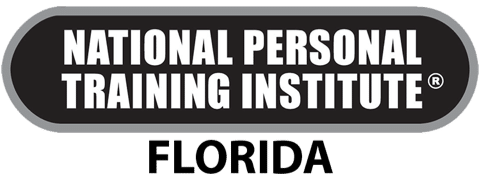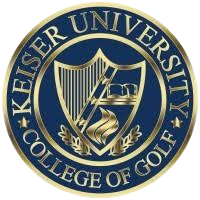
Financial aid (may be available)

$4,750 to start
$9,500 total

No cost info

No cost info
No cost info

Financial aid (may be available)
$4,147 total
$8,046 total
This Registered Respiratory Therapy program is 100% online and is designed as a nontraditional track for individuals who have completed an associate's degree in respiratory care and have already earned the Registered Respiratory Therapist (RRT) credential granted by the National Board for Respiratory Care. Our courses are taught by full-time faculty who are Registered Respiratory Therapists with advanced degrees and extensive clinical training and experience.
No cost info
No cost info
Working primarily in hospital settings, respiratory therapists are responsible for an extremely wide range of patients. From the smallest infants to the elderly, from long-term disease to emergencies, respiratory therapists must be prepared for everything. Our program will give you access to expert instruction and the cutting-edge skills you need to advance your career.
This is a degree completion program. Students must have earned an associate degree in respiratory care, hold your RRT from the National Board of Respiratory Care (NBRC), and currently licensed to practice to be eligible for admission.
No cost info
Respiratory Therapy careers are projected to grow 23% by 2026, and because East Tennessee State University allows more transfer credits than most universities, an online B.S. in Respiratory Therapy from ETSU can save you valuable time and tuition dollars while helping you move forward faster.
The Respiratory Therapy (Cardiopulmonary Science) Completion Program at ETSU is an accredited, online program dedicated to providing advanced instruction emphasizing best practices in clinical respiratory therapy based on scientific inquiry.
No cost info
The University of Cincinnati's online Bachelor of Science in Respiratory Therapy program is designed to improve real-world clinical competence while preparing active respiratory therapy professionals for a lasting future in the healthcare industry. The robust and engaging curriculum challenges students, promoting a deeper understanding of advanced healthcare operations, logistics, technology, leadership, ethics, and project management. Delivered by the industry-experienced faculty in the UC College of Allied Health Sciences, the online program advances respiratory therapy practice and research by focusing on current and future industry standards. The end result is a clinician who can make significant contributions to the field while positively affecting the future of respiratory care for a diverse range of patients. Build on your experience, define your practice, and prepare for the future. Develop the expertise needed for advanced practice and leadership opportunities. Interact and network with an industry experienced faculty and healthcare professionals. Earn a bachelor of science in respiratory therapy in as few as 20 months (5 semesters). Continue working while your learn with flexible, 100 percent online classes.
No cost info
A bachelor’s degree in respiratory therapy from MU will help you provide the hands-on care that assists in recovery and management of a wide range of medical conditions. If you hold the NBRC RRT credential or the Canadian equivalent, this may be the degree for you.
No cost info
If you're seeking a rewarding career in healthcare that offers diverse opportunities and the ability to make a significant difference in patients' lives, becoming a respiratory therapist might be just the path for you. However, finding the right training program can be challenging. This blog post aims to provide information on what a respiratory therapist does, the training requirements, what to look for in a class, what to expect from day-to-day classes, and the certification process.

A respiratory therapist is a specialized healthcare professional who treats patients with respiratory issues, including chronic respiratory diseases such as asthma or emphysema. They also provide emergency care to patients suffering from heart attacks, stroke, drowning, or shock. Respiratory therapists work in various settings such as hospitals, home healthcare agencies, specialized care centers, and patients' homes.
The journey to becoming a respiratory therapist starts with the right education. The minimum educational requirement is an associate degree in respiratory therapy, but many respiratory therapists opt for a bachelor's degree to increase their career prospects.
Prerequisites: Before enrolling in a respiratory therapy program, students typically need to complete courses in anatomy, physiology, chemistry, and microbiology.
Curriculum: Respiratory therapy programs cover a wide range of topics including medical gas therapy, pulmonary function testing, mechanical ventilation, and newborn and pediatric respiratory care.
Clinical Experience: In addition to classroom instruction, students are usually required to gain hands-on clinical experience in a healthcare setting.
Selecting the right respiratory therapist class is critical to your success. Here are a few factors to consider:
Accreditation: Ensure the program is accredited by the Commission on Accreditation for Respiratory Care (CoARC).
Curriculum: The curriculum should cover all the necessary topics and provide adequate hands-on training.
Faculty: Look for experienced faculty who can provide valuable insights and mentorship.
Student Support: The program should offer robust student support services, including academic advising, career counseling, and tutoring.
Respiratory therapist classes involve both theoretical instruction and practical training.
Classroom Instruction: Students learn about respiratory diseases, diagnostic procedures, treatment methods, and patient care.
Lab Sessions: Students gain hands-on experience in labs, learning to use and maintain respiratory care equipment.
Clinical Rotations: Students get the opportunity to apply their skills in a real-world setting under the supervision of experienced professionals.
After completing the respiratory therapy program, graduates must pass a national exam to become a Certified Respiratory Therapist (CRT). Some may also choose to become Registered Respiratory Therapists (RRT) by passing additional exams. Remember, the certification requirements may vary by state.
After becoming certified, respiratory therapists can explore job opportunities in hospitals, long-term care facilities, home healthcare agencies, and pulmonary function laboratories. Networking, leveraging online job boards, and connecting with professional organizations can be effective ways to find related jobs.
Once you are a respiratory therapist, you can further enhance your skills and knowledge by taking additional classes in areas such as:
Advanced Cardiopulmonary Care: This can open up opportunities in specialized care units.
Healthcare Management: These classes can pave the way for leadership roles in healthcare.
Research and Education: This can lead to roles in academia or research institutions.
To maintain their certification, respiratory therapists must participate in continuing education throughout their careers. This can be achieved through workshops, seminars, and advanced courses.
Joining professional organizations can provide opportunities for networking, professional development, and staying updated on the latest advancements in the field.
Respiratory therapists can choose to specialize in areas like pulmonary rehabilitation, sleep disorders, neonatal and pediatric care, or critical care.
While the job can be demanding, respiratory therapists can achieve a work-life balance with flexible work hours and the opportunity to work part-time.
Becoming a respiratory therapist is a rewarding career choice with plenty of opportunities for advancement. The right training program is the first step towards this exciting career. Remember, it's not just about finding ""respiratory therapist classes near me in Lakeland,"" but about finding the program that fits your career goals and learning style. Make use of resources such as Dreambound, the largest platform for students to find vocational training programs, to help you in your journey.
Find more information about becoming a respiratory therapist in Florida here and gain insights from a respiratory therapist here. If you're considering other healthcare roles, you might find this information about becoming a medical assistant in Florida helpful.
Dreambound has put together numerous guides to help you navigate the certification process in this field, tailored for various cities. For insights into the process or requirements in other states, see some of our additional guides below.
Considering a change in your career? We've gathered some perspectives to help you in your journey. You can explore several of these:
Dreambound's platform allows prospective students to find the right educational program for them through searching, filtering, and connecting with our extensive selection of career & technical education partners.
Dreambound has over 70 programs across healthcare, technology, business, and industrial trades. This includes programs such as Medical Billing, Cybersecurity, and welding.
Some of our schools offer financial aid for those who qualify. Many others offer payment plans, where you can pay the cost of class over time.
Yes, Dreambound offers many online programs. On Dreambound's search, you can filter by online, in-person, and hybrid (part online, part in-person).
Dreambound is completely free for you to use! We are supported by schools and organizations who pay to advertise on our website, so we can offer all of our career resources for free.